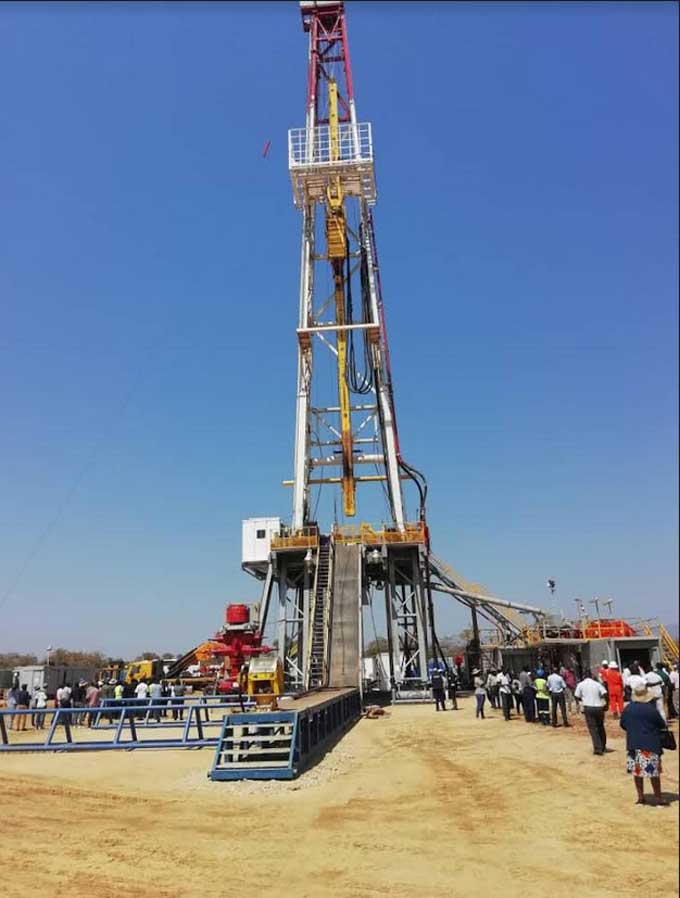
BY MTHANDAZO NYONI
GOLD focused resources giant, Caledonia Mining Corporation says it will increase capital injections at its Zimbabwe-based Blanket Mine by 78% in 2022 due to a worsening power crisis.
The New York Stock Exchange-listed giant said it now expects to sink in US$27 million at the operation that has also been affected by delays in the development of Central Shaft, which came online early this year.
The firm had previously projected to deploy US$15,2 million fresh capital into the operation.
In a management analysis of the operation, Caledonia said “cost overrun of approximately US$0,8 million at Central Shaft” than previously projected would be driving the increase.
The analysis said delays at Central Shaft cost the firm US$3,4 million, while poor quality electricity would chew up an additional US$3,2 million.
Caledonia said it will also spend an investment of approximately US$2,6 million to upgrade its workers’ village to accommodate an increasing workforce, as well as upgrade the water and sewerage system.
The increase in capital expenditure is also due to an investment of approximately US$0,8 million to increase the capacity of its metallurgical plant.
- Chamisa under fire over US$120K donation
- Mavhunga puts DeMbare into Chibuku quarterfinals
- Pension funds bet on Cabora Bassa oilfields
- Councils defy govt fire tender directive
Keep Reading
This would be important as the firm projects to handle higher tonnages in the coming year.
About US$1 million would be invested into acquiring additional compressors.
“This excludes any further investment to increase the scale of the solar plant, which is currently being constructed at Blanket,” the Caledonia management report said.
Zimbabwe has been crippled by severe power outages over the past few months, as national power utility, Zesa Holdings struggle to transmit enough electricity to meet demand estimated at about 2 200 megawatts (MW), against about 1 300 generation capacity.
Last month, the power producer said key facilities had been buffeted by “numerous forced outages owing to tube leaks and ID fan failures” that have compromised reliability.
It said production at Harare Power Station, one of it’s five plants, had plummeted to 13MW out of a maximum 100MW, giving an indication to the factors behind the rolling blackouts.
It said the massive power facility at Munyati was producing 13MW of a possible 100MW, while the Bulawayo power station had ceased generation.
Rolling blackouts have forced companies to resort to powering operations with expensive diesel generators.
“The cash effect on Caledonia of the increased capital expenditure in 2022 will be mitigated somewhat by income tax relief at 24,72% and the 15,2% effective economic interest of Blanket’s indigenous shareholders,” the company said.
Caledonia said the capital expenditure commitments also relate to materials and equipment, which has been ordered by Caledonia Mining South Africa Proprietary Limited and to be sold on to Blanket.
In addition to the committed purchase obligations, Caledonia paid US$4 million to the vendor of the Maligreen claims after the end of the third quarter of this year when they were transferred to Caledonia.
The company said it had an obligation to pay US$5 million in cash or shares (at the discretion of the vendor) if it decides to exercise its option to purchase the Connemara North claims in May 2022.
“Other than the proposed investment in the solar project and at the exploration properties, the committed and uncommitted investment will be used to maintain Blanket’s existing operations and implement the final development relating to the Central Shaft,” it said.
“Committed and uncommitted purchase obligations are expected to be met from the cash generated from Blanket’s existing operations and Blanket’s existing borrowing facilities and, in respect of the solar project and the exploration properties, from Caledonia’s cash resources and the proceeds of the proposed listing on the Victoria Falls Stock Exchange,” management said.










